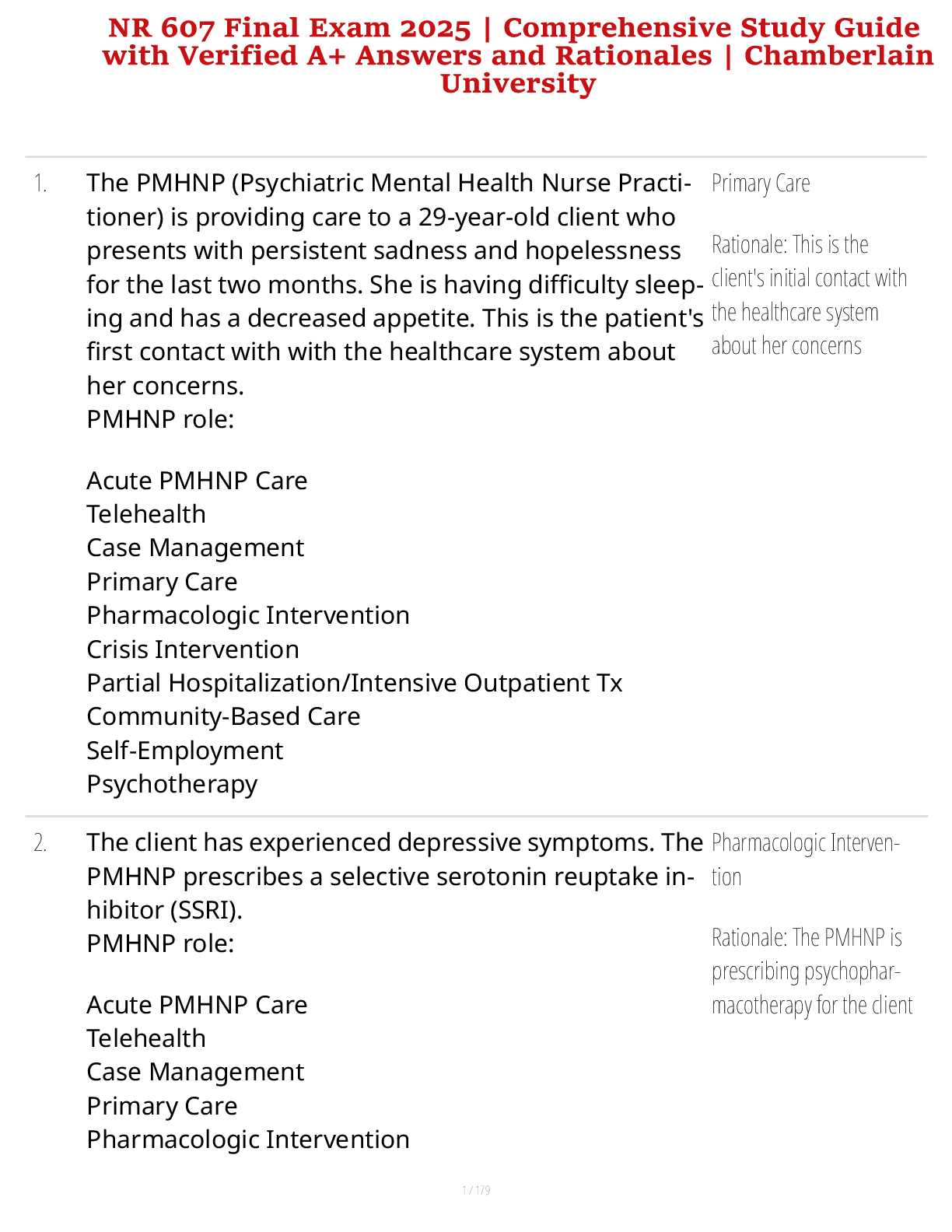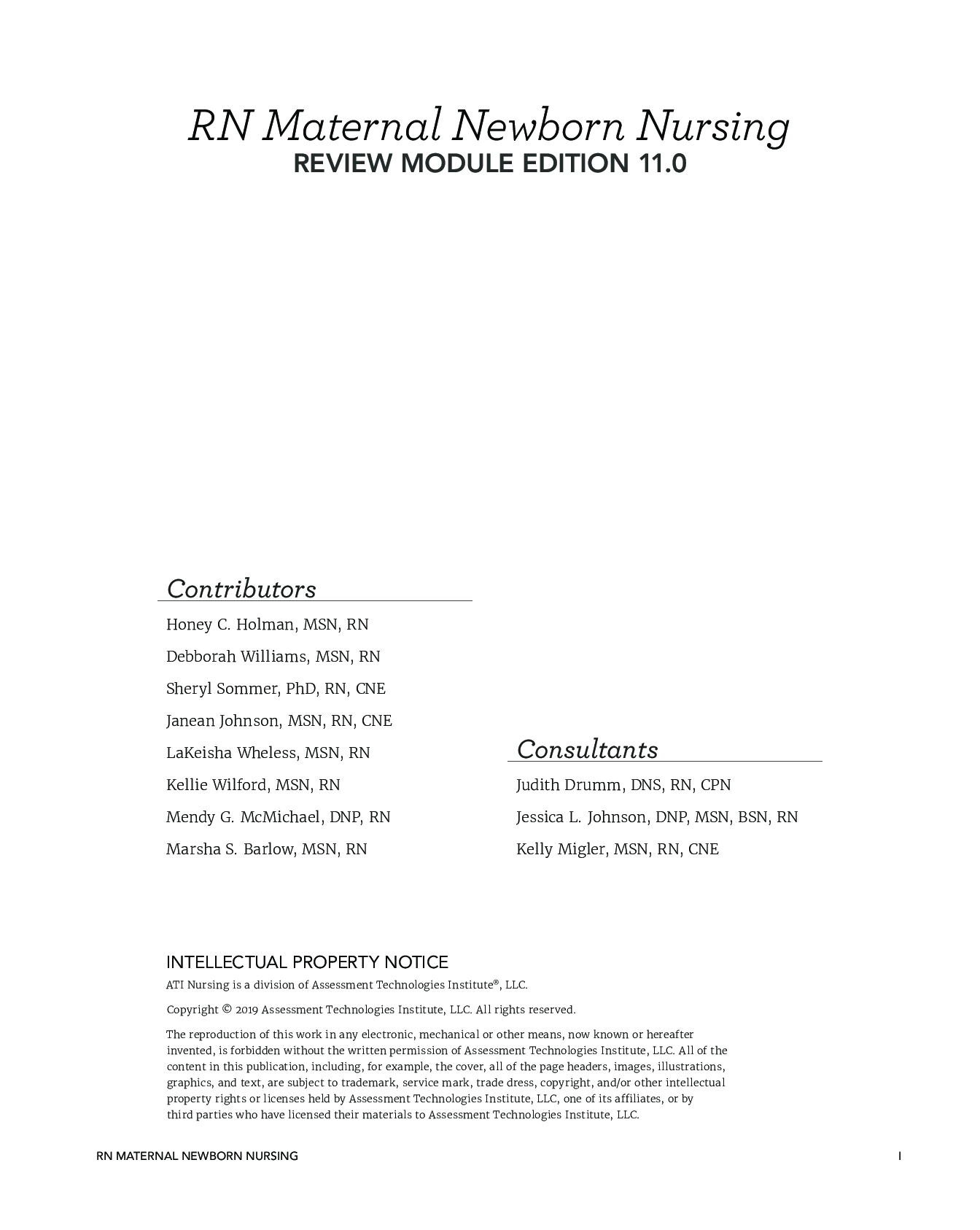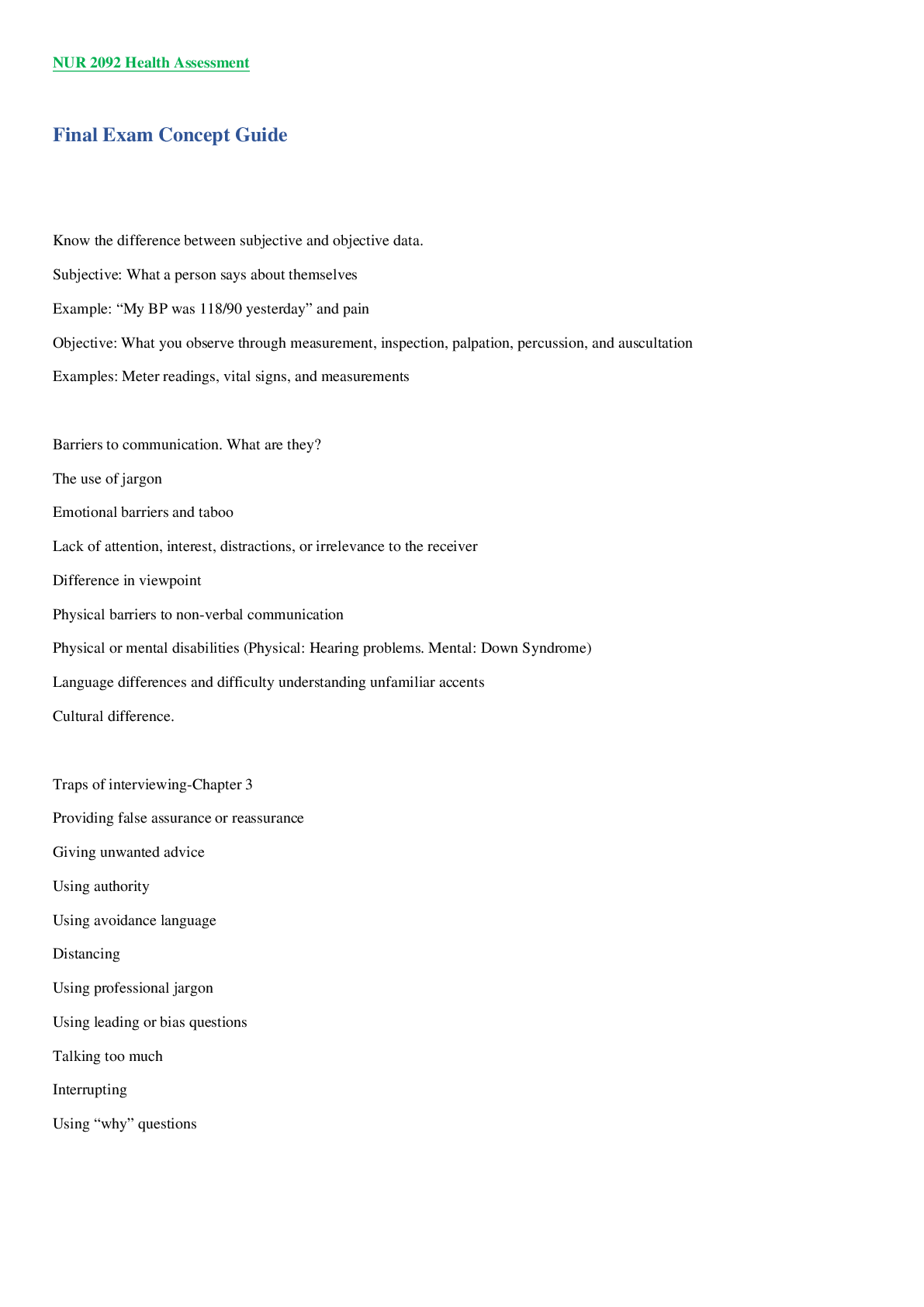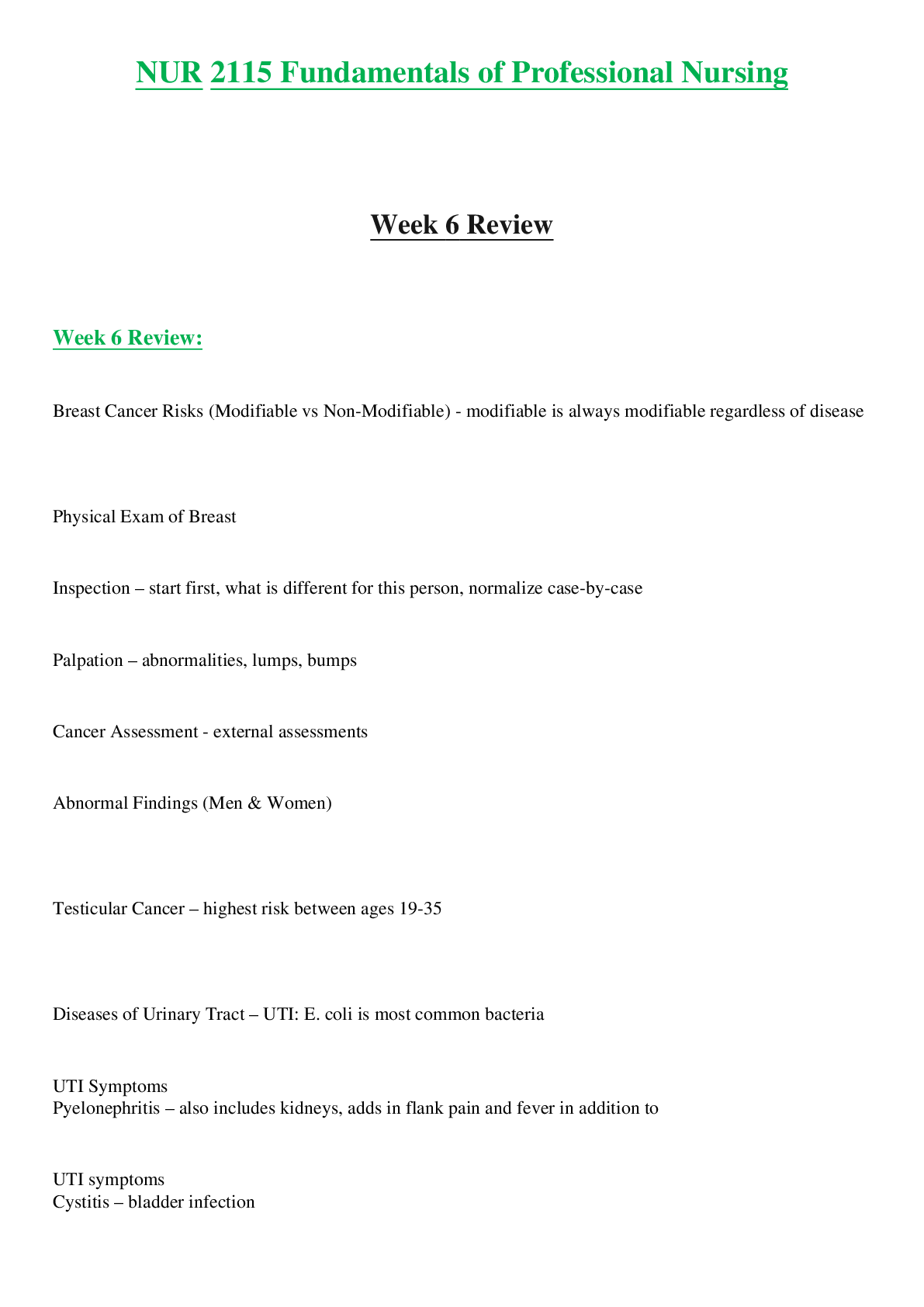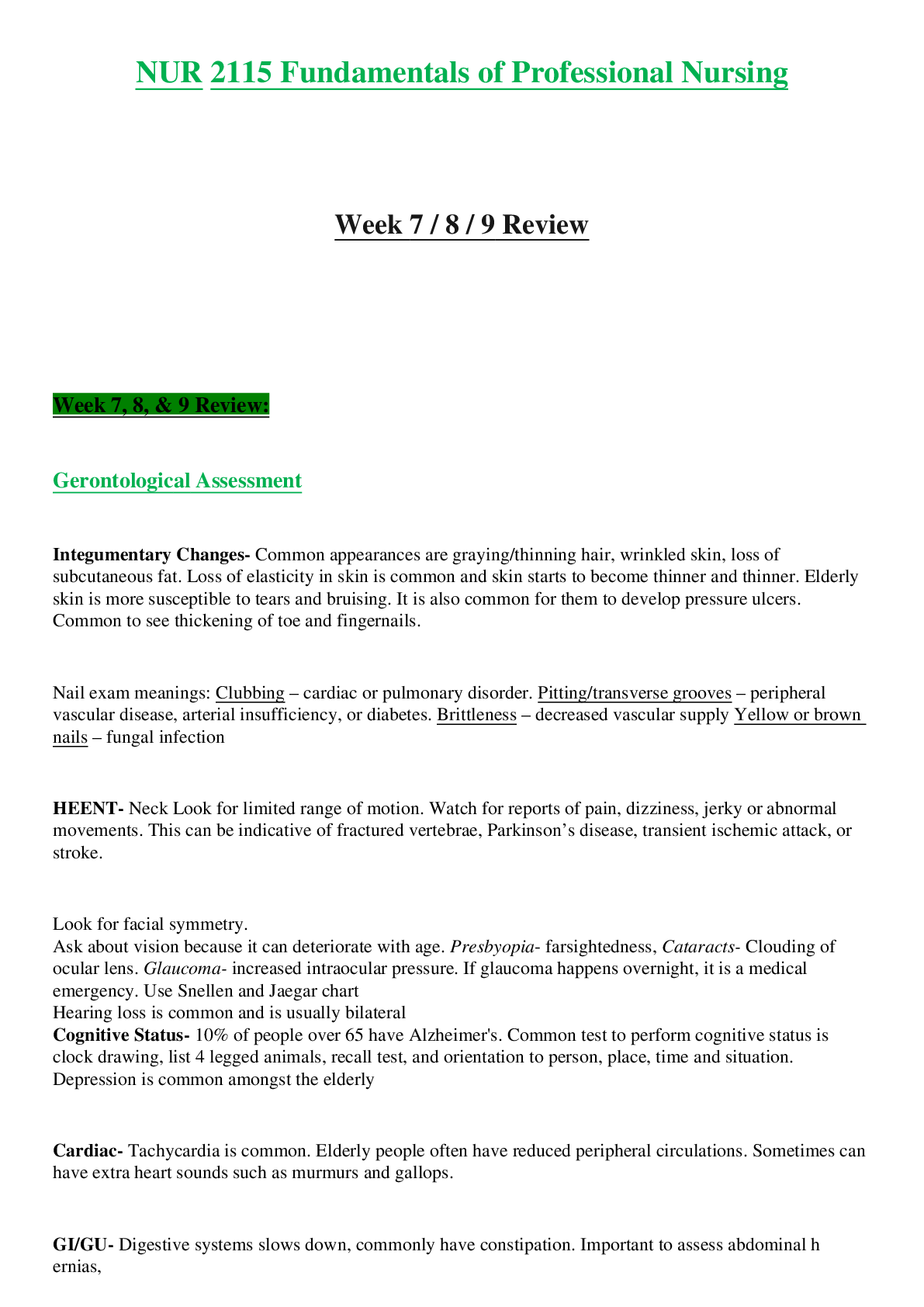*NURSING > STUDY GUIDE > Nursing 465 - Alteration in Urinary and Renal Function and Fluid Balance. Complete Study Guide. (All)
Nursing 465 - Alteration in Urinary and Renal Function and Fluid Balance. Complete Study Guide.
Document Content and Description Below
Alteration in Urinary and Renal Function and Fluid Balance Kidney Failure Results when the kidneys cannot remove wastes or perform regulatory functions A systemic disorder that results from ... many different causes Acute renal failure is a reversible syndrome that results in decreased glomerular filtration rate and oliguria Chronic renal failure (ESRD) is a progressive, irreversible deterioration of renal function that results in azotemia Note: *Reason for KF: HTN, DM *Acute is reversible. Whatever is causing the injury we can take it away & recover *Chronic: Progressive, we end up with nitrogen in our blood Acute Kidney Injury (AKI) - Acute Renal Failure (ARF) - Acute Kidney Failure (AKF) Types Prerenal Intrarenal Postrenal Causes of Prerenal Acute Kidney Failure- Perfusion or Obstruction 60-70% Hypovolemia Hypotension Reduced cardiac output and heart failure Obstruction of the kidney or lower urinary tract o Could be a malignancy Obstruction of renal arteries or veins Clots, plaques (Atherosclerosis) Note: Majority AKF is Pre renal. Intrarenal - What happens IN the kidney Intrarenal –directly affecting kidney Nephrotoxins o Aminoglycoside (Abx) Usually end in “–Mycin” “Think Mice in-side a little kidney” When giving ABX, monitor kidney function Can be permanent or reversible o Contrast media injuries Sometimes we don’t know this is happening until they have decrease urine output & edema o Myoglobin released from necrotic tissue (Damages kidneys PT’s involved in traumatic accidents Hemolytic Dx too Rabdomyolysis (SP?) Beta Hemolytic strep o Hemoglobin from RBC breakdown o Someone has taken something that has caused damage Post-renal Failure – Outside the kidney Post-renal – mechanical outflow obstruction backup into renal pelvis. o Prostatic hypertrophy/hyperplasia o Prostate Cancer BPH o Calculi (stones) o Extra-renal tumors Turmors outside of the kidney Bilateral = hydronephrosis (RF on both sides) Unilateral post-renal doesn’t usually cause azotemia (elevated nitrogen) because the other kidney can take care of it. GFR recovery if corrected in 48 hr Phases of AKI Oliguric – A phase with decreased or no urine output Diruretic– Then suddenly you go up in urine output Recovery Oliguric Phase of AKI Oliguric- last for 8 to 14 days o Output < 400 ml day (16cc/hr) may be anuric. 30cc/hr to indicate normal kidney function o Ischemic insult = rapid onset of oliguria R/T a clot, something that happens quick! o Nephrotoxic more gradual onset of oliguria May not be seen right away, longer period of time [Show More]
Last updated: 3 years ago
Preview 1 out of 26 pages
.png)
Buy this document to get the full access instantly
Instant Download Access after purchase
Buy NowInstant download
We Accept:

Reviews( 0 )
$8.00
Can't find what you want? Try our AI powered Search
Document information
Connected school, study & course
About the document
Uploaded On
Apr 30, 2021
Number of pages
26
Written in
All
Additional information
This document has been written for:
Uploaded
Apr 30, 2021
Downloads
0
Views
121

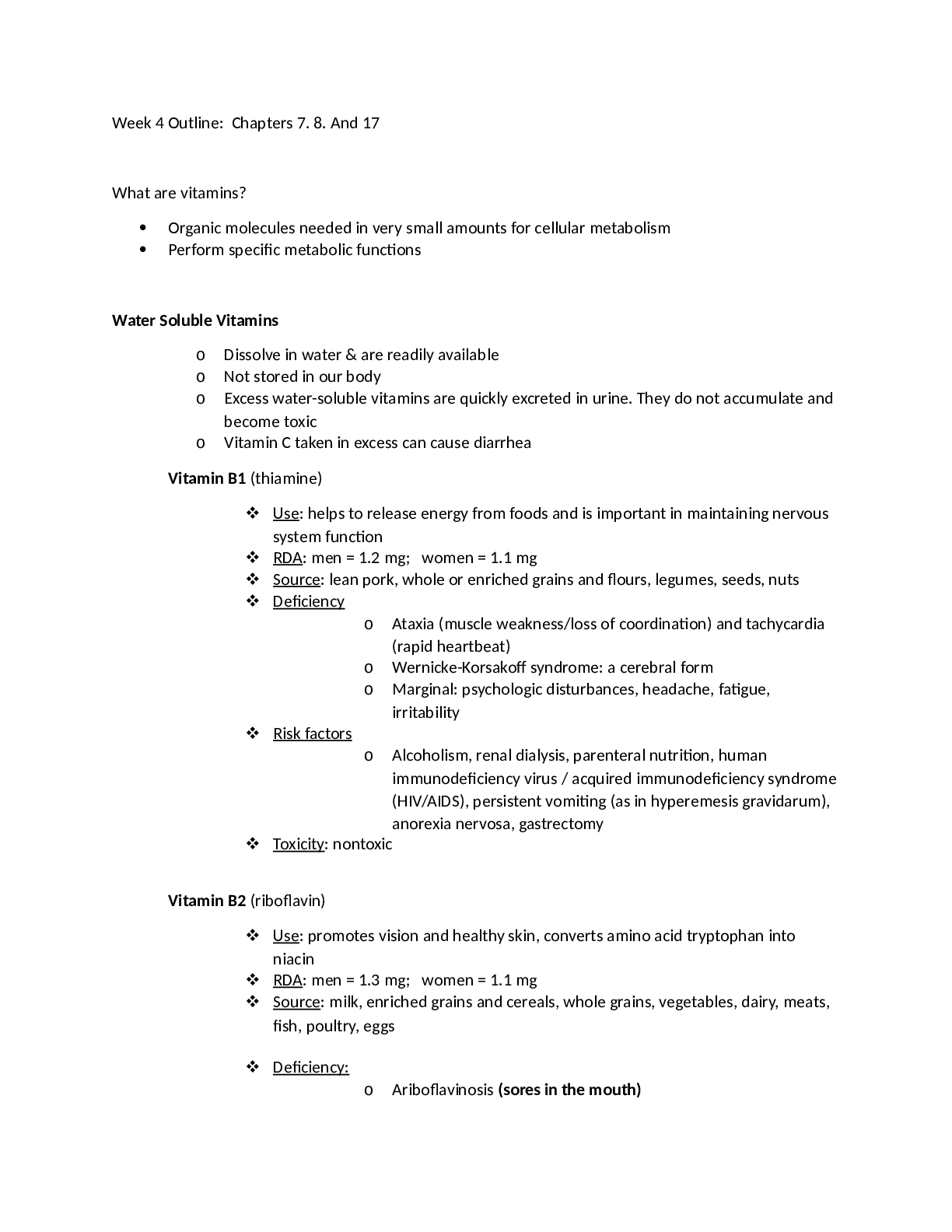
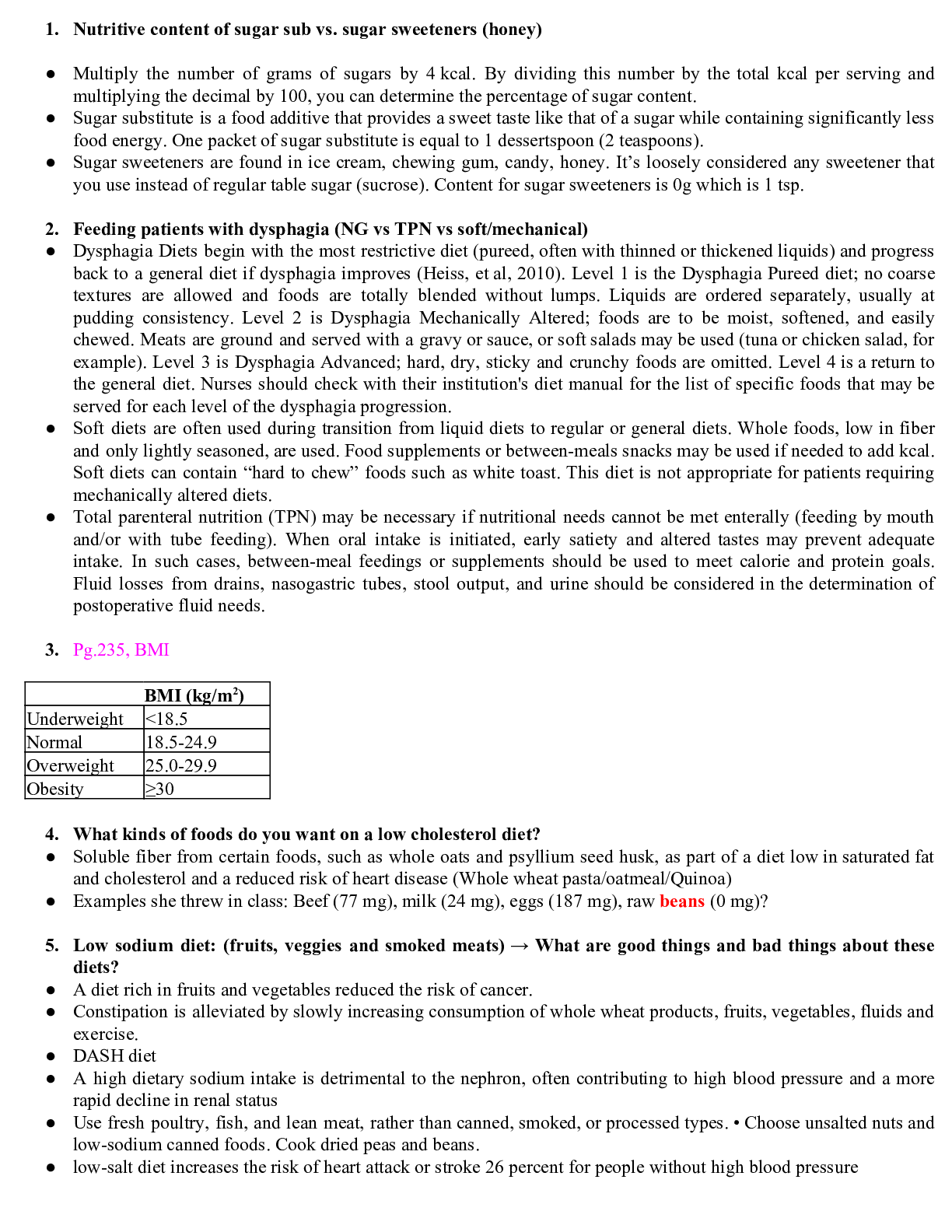
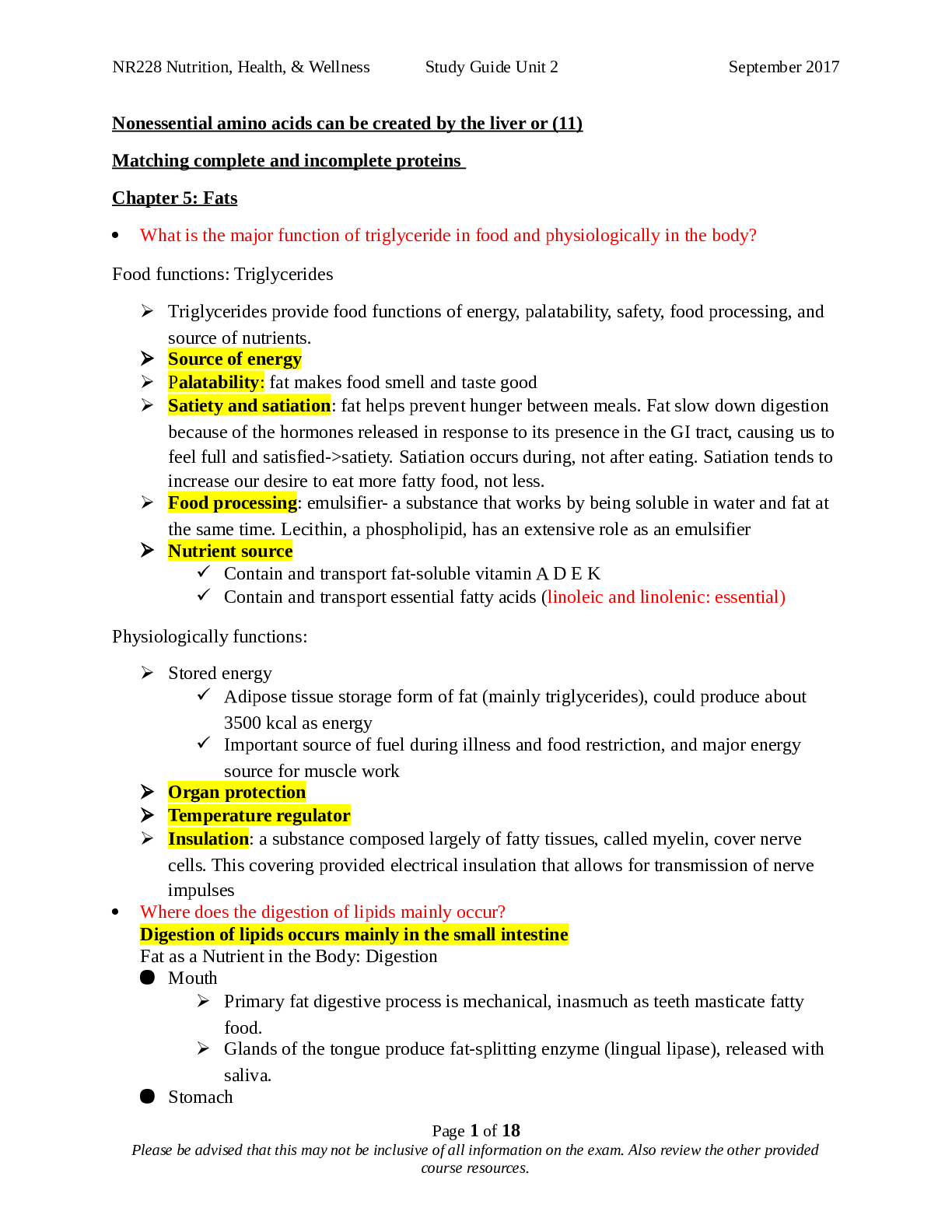
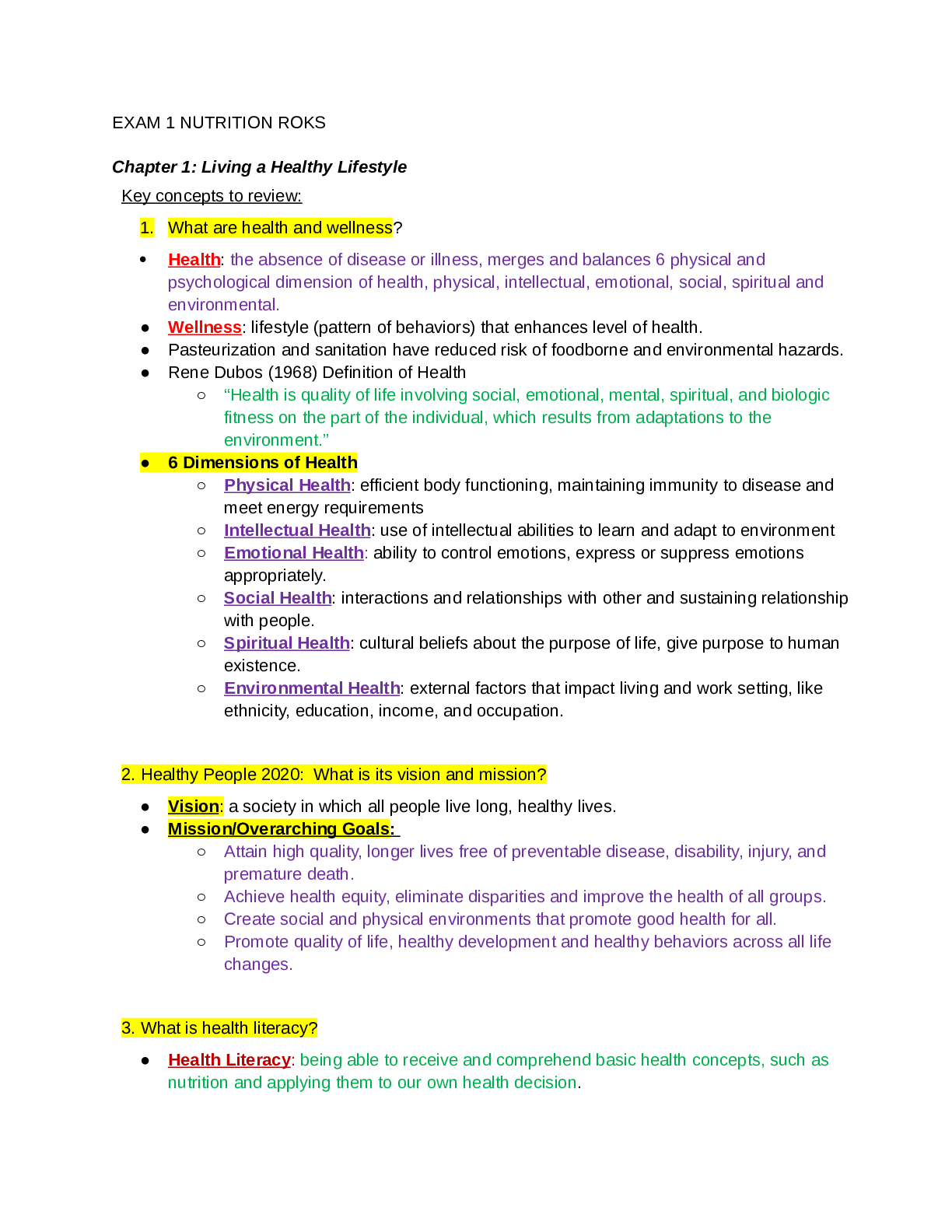
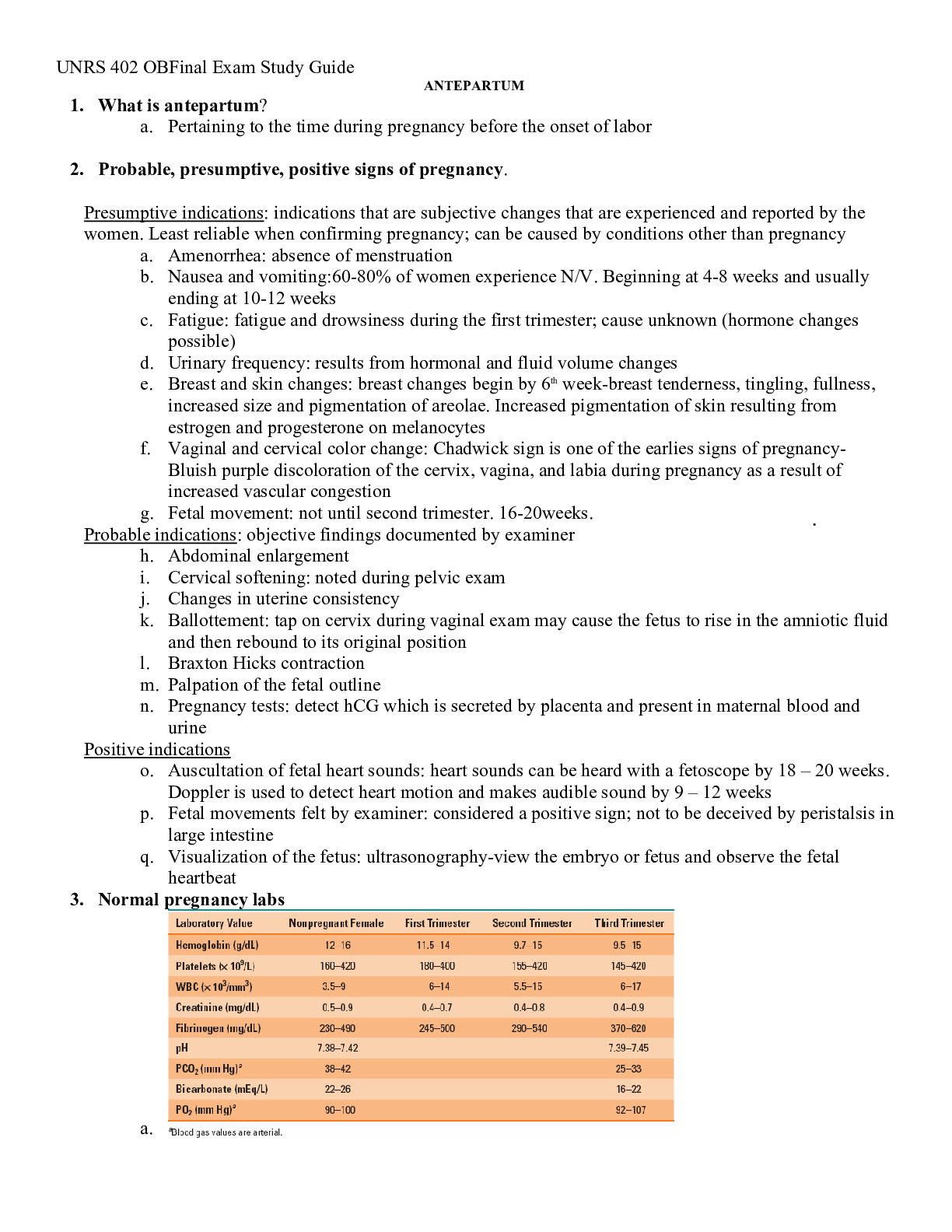


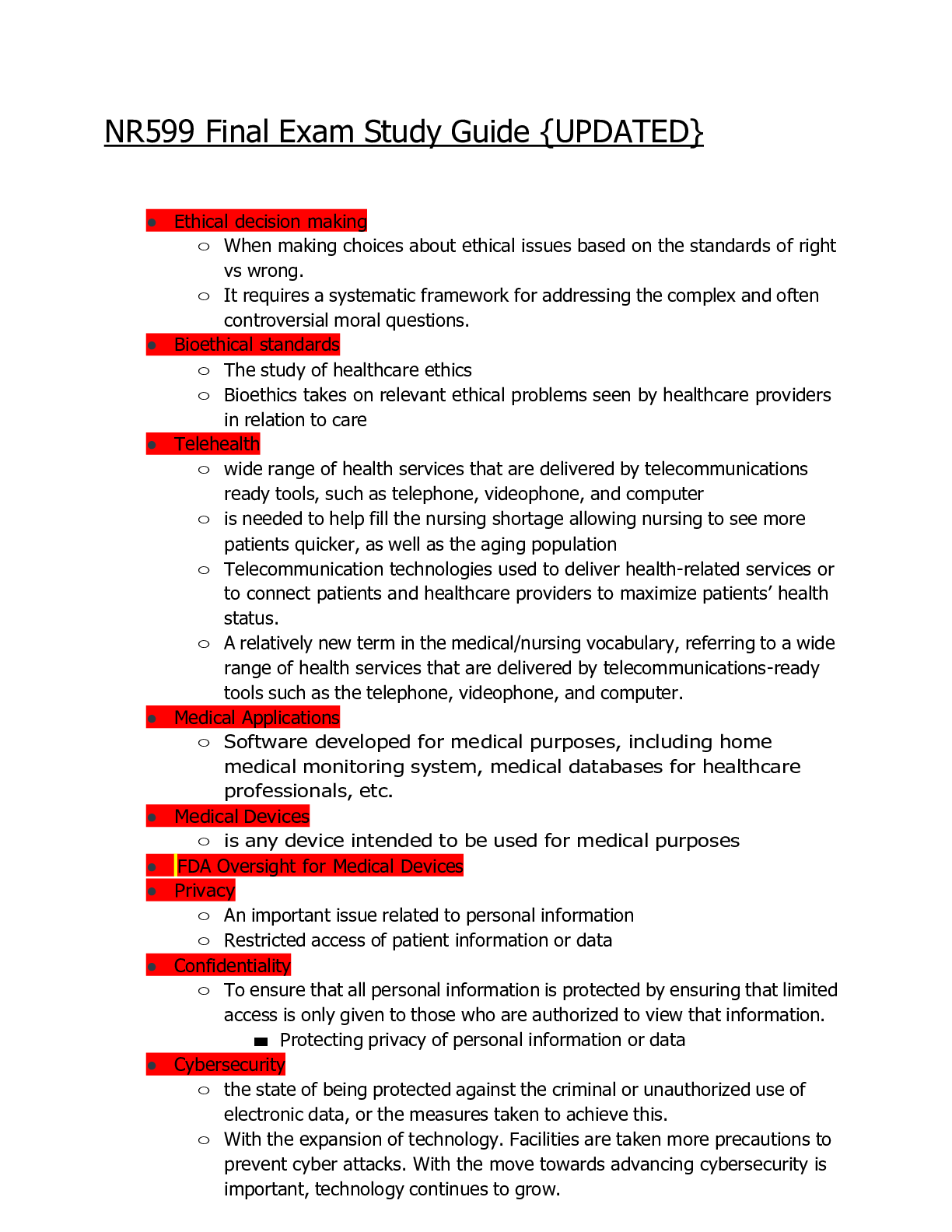
.png)
.png)

